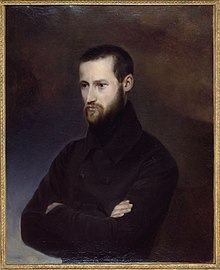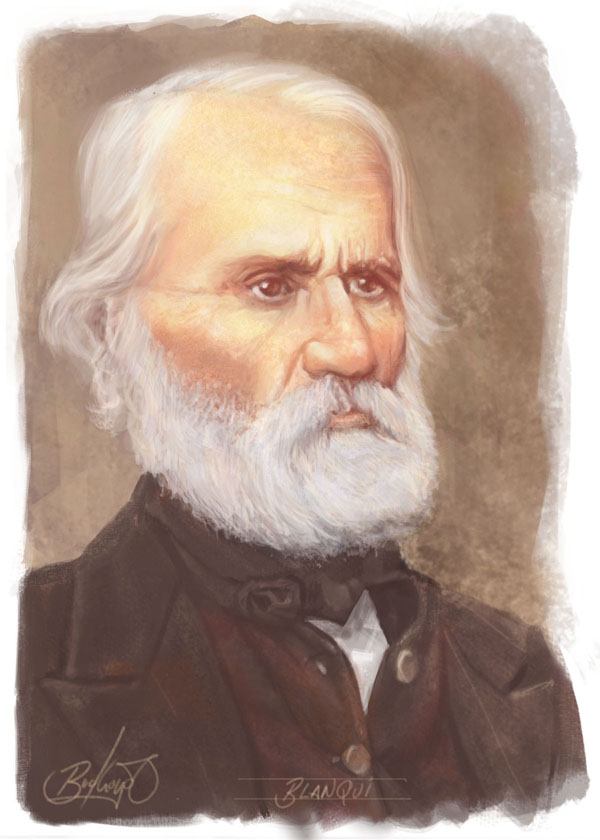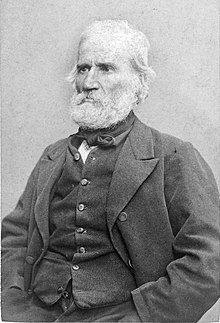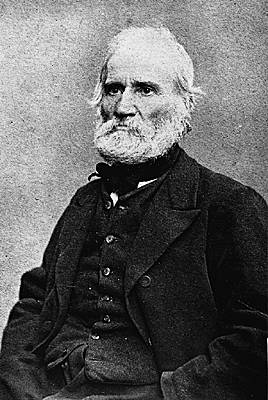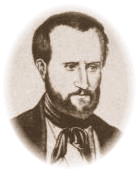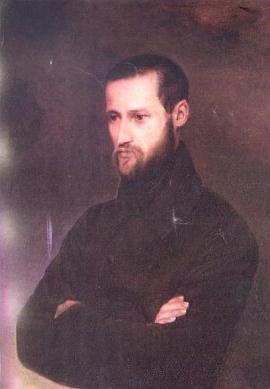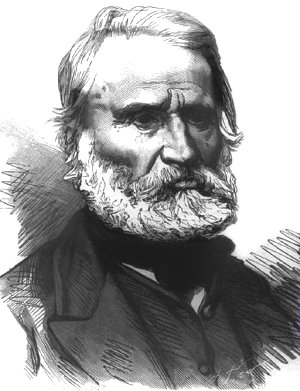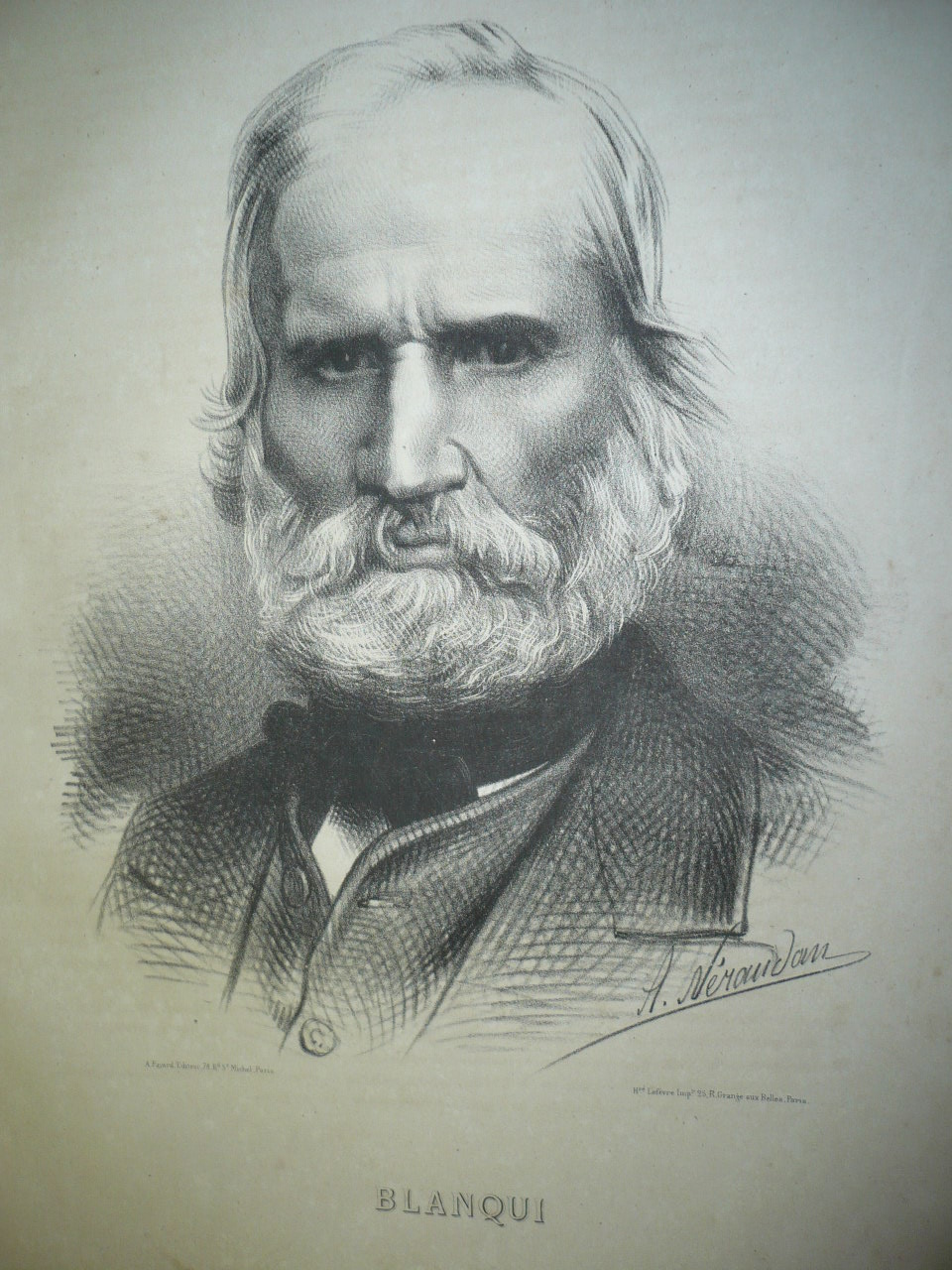Louis-Auguste Blanqui
Louis -Auguste Blanqui [ lwi ogyst blɑki ] ( born February 7, 1805 in Puget Théniers, Alpes- Maritimes, † January 1, 1881 in Paris) was a French revolutionary, theorist and 1871 member of the Paris Commune.
Life and work
Youth and Education
He was born in 1805 as the son of Jean -Dominique Blanqui and brother of the economist Adolphe Jérôme Blanqui. He studied law and medicine, but soon found his calling in political engagement. His intellectual and political career was influenced by the theories of François Noël Babeuf, Charles Fourier and Claude -Henri Comte de Saint -Simon.
Revolutionary activity
Blanqui took part in the July Revolution of 1830 in the overthrow of Charles X.. From 1831 he organized republican and socialist secret societies and led to the secret society of the seasons. He married in August 1833, the nineteen -year-old Amélie- Serre Suzanne, the daughter of a lawyer.
The resignation of the Cabinet under Molé, the convening of a transition cabinet and an economic crisis and unemployment lead in 1837 to a tense situation in France. Blanqui organized with Armand Barbès and other members of the secret society an armed uprising, which is thrown down on 12 and 13 May 1839 in Paris. The leaders of the revolt is on trial, sentenced to death Barbès. Blanqui himself initially remains volatile. Louis -Philippe converted the death sentence to a prison sentence Barbès on Mont -Saint -Michel. In October 1839 Blanqui is arrested and accused of involvement in the failed uprising against the " citizen king " Louis Philippe - sentenced to life imprisonment - a grandson of Charles X.. Prison conditions (eg food deprivation, dark cell in the cachots noirs ) to Mont -Saint -Michel repeatedly lead to riots, hunger strikes and suicide attempts among political prisoners. The conditions on Mont -Saint -Michel lead in the House to discuss a reform of the prison system. Rapporteur of the Commission is Alexis de Tocqueville; These developments lead to changes in prison from 1844. During the detention, (1841 ) dies, twenty-six, his wife Amélie -Suzanne, born Serre.
After nine years, he was pardoned, and even joined in the same year as the spokesman of the left in Paris June insurrection of 1848 appearance. Subsequently, he was arrested again and sentenced to ten years in prison. There he developed a signature socialist theory, in the center of which was the idea of a dictatorship of the proletariat: "The fact that France is full of armed workers, is the beginning of socialism." After his release and re- conviction and imprisonment in the years 1861-1865, he went into exile in Belgium to continue his fight from there.
After the general amnesty of 1869 he returned to France. In 1870 he participated in the organization of the uprising that led to the creation of the Paris Commune. In October 1870, he was then for a short time at the head of the transitional government. After the bloody suppression of the Commune Blanqui came again into prison. There he writes, influenced by Laplace and Lalande, the cosmological work L' Eternité par les astres. The basic theses are, inter alia, an infinite combination of all animate and inanimate phenomena with each other and the existence of " double - universes " in which all sorts of developments have their real counterpart (see also Possible World ). He was pardoned in 1879. Blanqui died 1881.
Work and impact
Shortly before his death he wrote his major work, the Critique sociale, which was not published posthumously only in 1885.
Blanqui had great influence on later communist and socialist movements. His followers, the Blanquistes, finally joined the Socialist Party of France.

